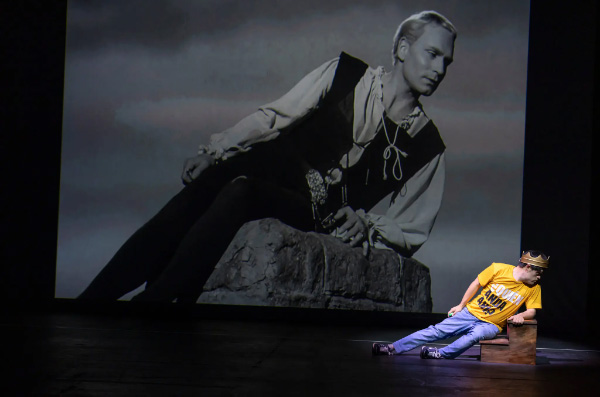
At Edinburgh Festival, Sometimes Simpler Is Better
By Houman Barekat, Reviewing from Edinburgh
Aug. 23, 2024
A version of this article appeared in print on Aug. 26, 2024, Section C, Page 3 of the New York edition with the headline: Exploring Personal Travails, and Bigger Concerns.
If you say “Edinburgh Festival” to most people, they’ll probably think of the Fringe. But the Fringe — primarily a showcase of up-and-coming acts from English-speaking countries — is actually an offshoot of the more global, highbrow and judiciously curated Edinburgh International Festival, and the two events run side-by-side.
The theater offerings in this year’s International Festival showcase the brightest Scottish talent alongside shows from around the world and fall into two categories: While the international plays are overtly political, encompassing disability rights, antiracism and ecology, the homegrown works explored the more personal terrain of addiction, recovery and self-care.
One of the most eye-catching items on the bill was a metafictional spin on “Hamlet” by the Peruvian company Teatro La Plaza, which ran at the Royal Lyceum Theater Edinburgh earlier this month. This production, performed by eight young actors with Down syndrome, charts the journey of a similar, but fictional, group as it prepares to put on a production of Shakespeare’s famous tragedy. The actors perform snatches of “Hamlet” — there’s a murdered father, a ghost, a play within a play — and try to connect its story line to disability: Polonius’s protectiveness toward Ophelia, we are told, echoes society’s tendency to infantilize people with Down syndrome.

But there isn’t much thematic overlap, and this “Hamlet” is mainly a cipher for the power of storytelling. In a key scene, Álvaro (Álvaro Toledo) sees Jaime (Jaime Cruz) trying to replicate Laurence Olivier’s famous performance in the 1948 film adaptation, which plays on the screen behind him. Álvaro upbraids Jamie for trying to play the part “like a statue.” The message, that people with Down’s must carve out their own paths rather than assimilating to normative expectations, is later reiterated in a defiant punk rock routine.
The cast appears in casual rehearsal attire, but a dazzling selection of spotlights (by Jesús Reyes) injects a sense of magic. The actors are capable and immensely charismatic, and there are a number of funny moments including a fake Skype chat with Ian McKellen.
Read the full article in The New York Times here.